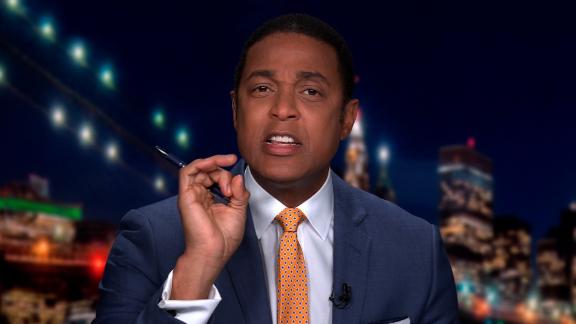
In recent days around the country, small numbers of protesters, organized by (among others) a number of well-funded right-wing groups and egged on by all-caps tweets from the President, showed up around the country to denounce social distancing measures. Some carried Confederate flags or automatic weapons or signs indicating their affiliation with anti-vaccination ideology or conspiracy-theories. Battle cries included, “I need a haircut” and “I hate having to get two iced teas in the drive thru,” the latter from a man missing free refills in sit-down restaurants.
These cris de coeur may pale in comparison to Patrick Henry’s “liberty or death,” but white men with guns marching in the streets always generates media attention. It would be easy to watch the footage and think we’re a bitterly divided nation. In fact, we’ve rarely been more united. The silent majority of Americans, at great financial and emotional cost, are staying home.
This vast majority is doing something amazing right now. By strong margins, according to recent Pew research data, Americans support social distancing and are worried that states will be pushed to lift restrictions too quickly. Distancing is the most impressive civic-minded act I’ve ever seen in this country.
The overwhelming collective commitment to social distancing reveals a patriotic urge toward the common good. It’s a story about not doing things, taking place in absences and solitude, so it is easily missed, especially as each of us tries to figure out how to make it through each day. Moreover, the burdens we face in distancing are not equal, whether because of poverty, lack of freedom of movement in one’s communities, myriad forms of discrimination, the situations inside our homes — or whether we have homes at all. But the bulk of us are all doing what we can. We mostly are listening to our best leaders and to scientists.
Part of me honestly didn’t think we had it in us. America has always felt very selfish to me, a society structured intentionally around prioritizing individual rights over the collective good. Our insistence on individual rights isn’t all bad — it has both promoted innovation and protected our right to dissent. Still, as a child of the 1980s, often known as the decade of greed, I have always worried that the “me generation” won. The losers since then, moving into the 1990s and 2000s, have included the social safety net, environmental regulation, anti-poverty efforts, public education and access to health care.
These days though, as I witness the spirit of collective sacrifice, I believe we might be able to change trajectories as a country. I might hazard a guess that some of the marching men with guns believe similarly, and it scares them.
One secret to this unity has been effective leadership at the state level, though maybe my optimism here is skewed by the no-nonsense and proactive approach of the Democratic and Republican governors in the newly formed Midwestern Compact. Among the lessons I hope Americans learn from this crisis is that state and local elections really matter. My governor, Tim Walz — a former social studies teacher and football coach likely not much known on a national basis — has since the start calmly consulted experts, communicated the facts clearly to the populace, but has a coherent message: Social distancing is working. Minnesota’s per-capita infection rate is the lowest in the nation. It’s OK to go fishing, but relaxing social distancing too early would undo all our success and make our sacrifices less worthwhile.
The sacrifices are not trivial, though many of the ways that pain is being distributed has more to do with political choices to protect the biggest corporations rather than the small business or everyday Americans. I also worry about the coming mental health catastrophe for both children and adults, both for people like me who were already struggling with depression and anxiety, and for those experiencing new trauma through isolation, abuse, deprivation or neglect. In the future, resiliency will require serving the vulnerable rather than comforting the already affluent.
At the same time that the protests were ramping up across the country, I was cleaning my garage, celebrating the Minnesota tradition of draining the gas out of the snowblower, blowing out all the autumn leaves from the corners, and prepping the lawnmower. The last April snow (so far) had melted and the temperature was soaring above 60, though the wind still carried a touch of winter’s edge.
Neighbors walked by, alone or in small groups, with plenty of kids on bikes and dogs thrilled at having their owners around so often. We greeted each other, me from atop the steep slope of my driveway (the reason I bought that snowblower), as they walked by on the street. The conversations were brief, but the warmth between us felt both genuine and often surprisingly vulnerable. We chatted about our lives during this strange and scary time, wondered how we were each holding up, looked toward a better future when treatment and vaccination became possible, and offered what seemed to be genuine expressions of mutual support.
My neighbors are divided, or at least differentiated, by race, gender, religion, and politics. The distancing, ironically enough, has made us more visible to each, and made tangible the bonds that hold our communities together. Distancing may not be an act of heroism, but it is an act of love.
"love" - Google News
April 21, 2020 at 10:18PM
https://ift.tt/2yv1q0o
Today's biggest act of patriotic love - KRDO
"love" - Google News
https://ift.tt/39HfQIT
Shoes Man Tutorial
Pos News Update
Meme Update
Korean Entertainment News
Japan News Update
Bagikan Berita Ini














0 Response to "Today's biggest act of patriotic love - KRDO"
Post a Comment